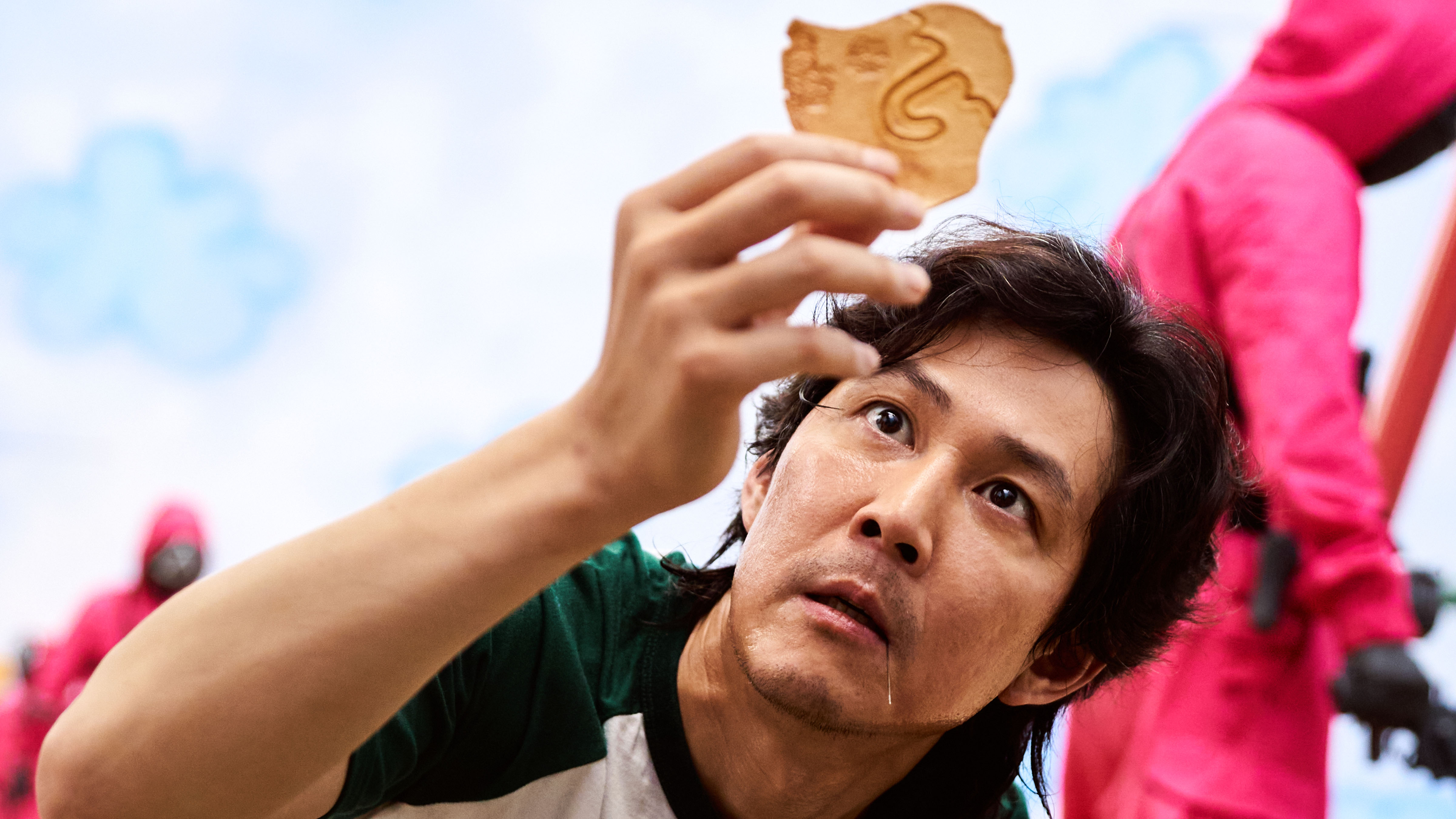Netflix's Squid Game shows we're ready for subtitles – just be sure to pick the right ones
Squiddle me this

Sign up for breaking news, reviews, opinion, top tech deals, and more.
You are now subscribed
Your newsletter sign-up was successful
Are you watching Squid Game? The hit Netflix show out of South Korea has quickly become a global phenomenon, taking on even the likes of Bridgerton as the most-watched show ever on the service.
The show’s twisted premise – a series of children’s games with heightened life-and-death stakes – alongside some gripping ensemble characterization, and a sharp look at the financial and class inequalities of South Korea, have captured the minds of audiences worldwide, and it’s not hard to see why.
But it’s worth dwelling for a moment on the how. It’s clearly a different streaming market than it was even a few years ago, with Netflix’s investment in locally-produced storytelling in regions around the world paying off in dividends.
- Which is the best streaming service in 2021?
- The best Netflix movies to stream right now
- Squid Game season 2: will it happen?
The streaming service has seen hits emerge out of Brazil (3%), India (Indian Matchmaking), France (Lupin) and Spain (Money Heist) over the past few years. But Squid Game overtaking even Netflix’s English-language shows across the globe is a notable achievement indeed.
It calls to mind the words of Bong Joon-Ho, the Oscar-laden director of 2019’s Parasite – itself an incisive look at the class dynamics of South Korean society. The genre-defying thriller bagged four trophies at the 92nd Academy Awards, along with the Palme d’Or and a number of Golden Globe and BAFTA trophies alongside, and marked a watershed moment for the appreciation of non-English films among Western audiences.
While accepting the Oscar for Best International Feature Film, Joon-Ho stated that “Once you overcome the one inch tall barrier of subtitles, you will be introduced to so many more amazing films" – and it seems like, two and half years on, some of that truth has hit home.
Not that subtitles don’t contain their own issues. Multilingual viewers have cottoned on to inconsistencies between the meaning of the original, Korean language of the show and the English subtitles that Western audiences are largely relying on.
Sign up for breaking news, reviews, opinion, top tech deals, and more.
Our own experience of the show’s dialogue, even in translation, gets across the quality of the screenplay – while translation itself will always see changes in meaning, as phrases are distorted into the context of a different language and culture. But it’s apparent that some things are being lost in translation.
Subtweets and subtitles
Twitter user @ymmayer points out a number of changes between the intended meaning of a line and the end result in English, including a character’s “What are you looking at?” being translated as “Go away”, sweet moments between friends being dumbed down from “we have no ownership over each other” to “we share everything”, and “every other” line containing some minor mistranslation – all of them accumulating into an altered atmosphere and understanding the show’s characters and themes.
not to sound snobby but i’m fluent in korean and i watched squid game with english subtitles and if you don’t understand korean you didn’t really watch the same show. translation was so bad. the dialogue was written so well and zero of it was preservedSeptember 30, 2021
They also stress they're not trying to dump on the translators involved, citing the lack of appreciation for the craft as a whole, and how "underpaid and overworked" translators often are.
also i want to point out that the reason this happens is because translation work is not respected and also the sheer volume of content. translators are underpaid and overworked and it’s not their fault. it’s the fault of producers who don’t appreciate the artSeptember 30, 2021
But there also appears to be a discrepancy between Netflix’s own English subtitle tracks, with ‘English’ and ‘English CC’ offering distinct translations. The former appears to be more accurate, while the CC track – ‘CC’ being short for ‘closed captions’, which includes audio descriptions of sounds beyond simply dialogue, ostensibly for those who are hard of hearing – botches translation further.
We’ve experienced shows on Netflix before where the English audio dub and subtitles appear to be distinguished from each other, and it’s curious to see a separation of processes here. But CC tracks tend to cleave closer to the audio dub, as they're aimed at those who are struggling to make out dialogue completely or at all. That means they're often even further removed than a straight-to-text translation.
It's the closed captions track that's the real issue here, and which @ymmayer appears to be citing – so if you're hoping to get the best experience out of Squid Game, and don't have the patience to learn Korean first, we do recommend checking your subtitle settings to ensure they're set to 'English' rather than 'English CC'.
- Subtitles on Netflix, Amazon, Hulu and Disney Plus: who does it best?

Henry is a freelance technology journalist, and former News & Features Editor for TechRadar, where he specialized in home entertainment gadgets such as TVs, projectors, soundbars, and smart speakers. Other bylines include Edge, T3, iMore, GamesRadar, NBC News, Healthline, and The Times.